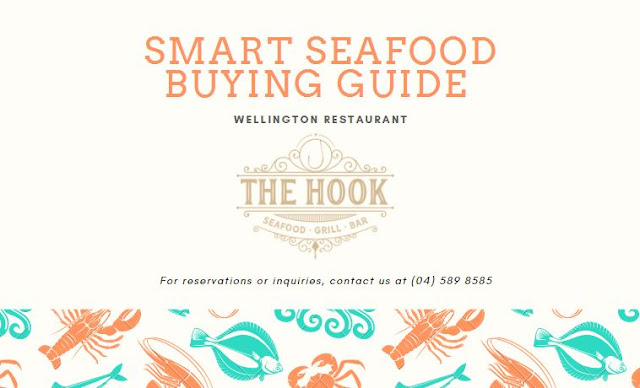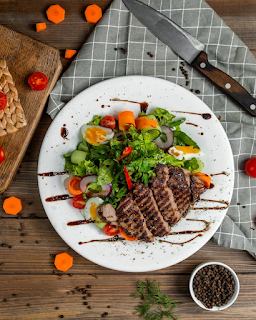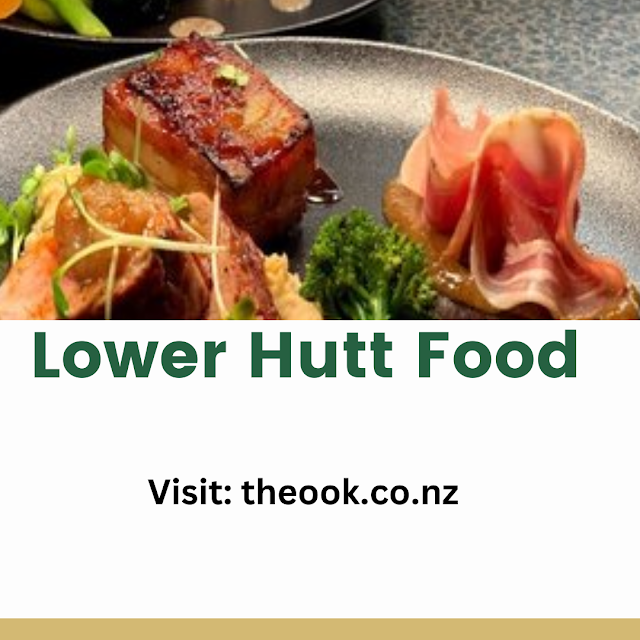The Smart Seafood Buying Guide | Wellington Restaurant
Today seafood industry is witnessing many adversaries as our oceans are heavily polluted and acidifying, thereby affecting the aquatic creatures in several ways. Due to overfishing only, the population of global fish is dangerously depleting. Meanwhile, mercury levels in fish are increasing that could lead to many diseases in consumers.
Keeping them aside, we must know the health
benefits of seafood. As the sustainable-food movement flourishes, the
fish lovers are curious on more information about it.
Let's discuss a few important things to consider during
seafood shopping.
Choose small
You know Mercury is a neurotoxin that
can take a dig on consumers' brain function as well as nervous system. The
young children and pregnant women are mostly vulnerable to these effects. Smaller
fish in general contain less mercury than larger varieties. That's why you can
choose small over big.
It is recommended that you should
expect dishes prepared with small fish on your dining table at the restaurant
you visit. This is safer and more nutritious for you and your family members.
Keep it in mind.
Buy Local
The per capita consumption of
seafood in New Zealand stands at about 25 Kg every year. A large portion of
seafood is produced by its Fishing and Aquaculture industry. The country also
exports some percentage of it to hike its revenue collection, which indirectly
puts pressure on domestic consumption.
As per a study, seafood
consumption has risen over the last few years. This is attributable to various
factors and increase in health consciousness is one of the primary reasons.
Seafood is proved to be a healthier option as compared to other meat products,
such as red meat, due to presence of protein and omega-3 fatty acids.
You need to rely more on local rather than exported items as farm-raised products are exposed to dangerous antibiotics and chemicals, stored in bacteria-laden ice. Some countries have already banned such seafood.
Diversify
Lower Hutt restaurants experience
the popularity of seafood much more than other regions of Wellington. The demands
of seafood types - shrimp, tuna and salmon are quite high in Petone
restaurants. This demand leads to overfishing and habitat destruction. To
maintain ecological balance, you need to diversify your seafood choice.
Be vigilant
Strictly, always buy seafood from
trustworthy restaurants. The best seafood restaurant in Wellington maintains
optimum standard for the seafood they sell and keeps long-term sustainable
seafood plans in place i.e. the demands of seafood is met through environmentally
responsible ways.
You must be vigilant about the procurement
of seafood by the restaurant and it's better if you can gather information
about its certificates and recognitions given by food safety or any related
departments of the local administration.
Use modern equipment
Seafood which is both healthy and
sustainable is everyone's choice. Certain tools and equipment available today
can make your seafood fast and tasty. You can check those at your favourite
restaurant in Lower Hutt during your friendly visit. Yes.. One more thing is
that you should not ignore negative impacts of the tools, if any. You must stop
using them in such cases.
Before heading to your nearest
restaurant in Petone, you must have an enquiry about the food items and
everything on its website as eminent restaurants make everything transparent.
Whether you are buying seafood or
enjoying them at the Petone restaurant, you should not ignore this safety
guide.
"Let your food be your
medicine, and your medicine be your food" – Hippocrates.




Comments
Post a Comment